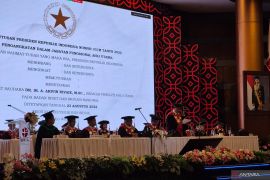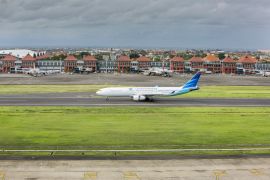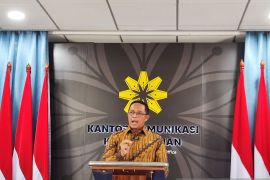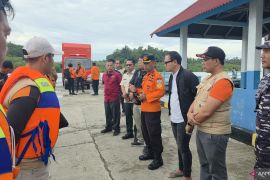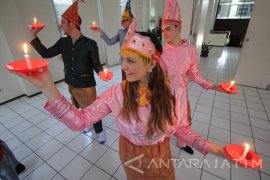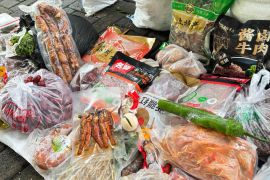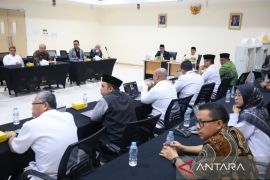In its press statement, received here on Tuesday night, the association said that besides often neglecting the seamen, Taiwanese ships have often damaged the countrys reputation by using the national flag during their operations without following proper procedures.
"The Indonesian government must immediately impose a moratorium to stop cases of slavery involving Indonesian seamen on Taiwanese fishing boats," KPI President Hanafi Rustandi said in response to the return of 74 seamen who were working on Taiwanese fishing vessels.
The 74 seamen were repatriated from Cape Town, South Africa, following the return before of 163 Indonesian crewmembers, who had worked on Taiwanese fishing vessels operating in Trinidad and Tobago, without the proper settlement of their rights.
The arrival of the seamen from Cape Town was welcomed by the secretary of the KPI executive board, Sonny Pattiselanno; a staff member from the Protocol and Consular Affairs of the Indonesian embassy in Pretoria, South Africa, Risa W.S. Wardhani; and Indonesian Consul in Cape Town Adhi Wibowo, as well as the director of mediation and advocacy of the National Agency for the Placement and Protection of Indonesian Migrant Workers (BNP2TKI), Teguh Hendro Cahyono.
The 74 seamen have so far worked on seven Taiwanese vessels operating in international waters, including the waters controlled by South Africa. The seamen---some of whom come from the northern coastal areas of the West and Central Java provinces---arrived at Jakartas Halim Perdanakusuma airport on Tuesday evening aboard a chartered plane provided by the South African government, using travel documents provided by the Indonesian consulate in Cape Town.
These seamen had been recruited by 12 agencies in Indonesia, mostly in Jakarta, and were sent to several ports of call to board international ships or were sent to transit ports, from which they were later moved to other ships on the open sea.
One of the seamen admitted that he was sent from Jakarta to Medan and later to Penang, Malaysia.
The Indonesian recruiting agencies had received orders from five brokers in Taiwan and Malaysia.
These seamen had worked on seven fishing boats under three- to seven-year contracts, earning a salary of between US$170 and US$350 per month, depending on their job description.
However, in general, they had only received a salary for the first four months of their duty and were never paid again, right up to the time they were sent home.
"What makes us sad is that they were left stranded after their ships were seized and detained in Cape Town, allegedly for poaching, since December 1, 2013," noted Sonny Pattiselano, who is also the deputy chairman of the Fishing Section of the Asia Pacific Federation of International Transport Workers.
According to Consul Adhi Wibowo, the case was uncovered following a report from the Cape Town Immigration Service about five fishermen holding no passports.
Following an interrogation, it was found that these fishermen had been moved to another ship after their vessel caught fire and sank.
According to Sonny, it was found that the fishermen had been recruited and placed in Taiwanese fishing vessels without following the BNP2TKI regulation or other national regulations.
He claimed the seamen had been employed without a working agreement validated by the Directorate General of Sea Transportation.
"This practice has gone on for a long time, but no real action has been taken so far against the recruiting agencies involved, while their method of operations have run against and ignored various regulations leading to alleged human trafficking," Sonny added. (*)
Editor: Heru Purwanto
Copyright © ANTARA 2014
